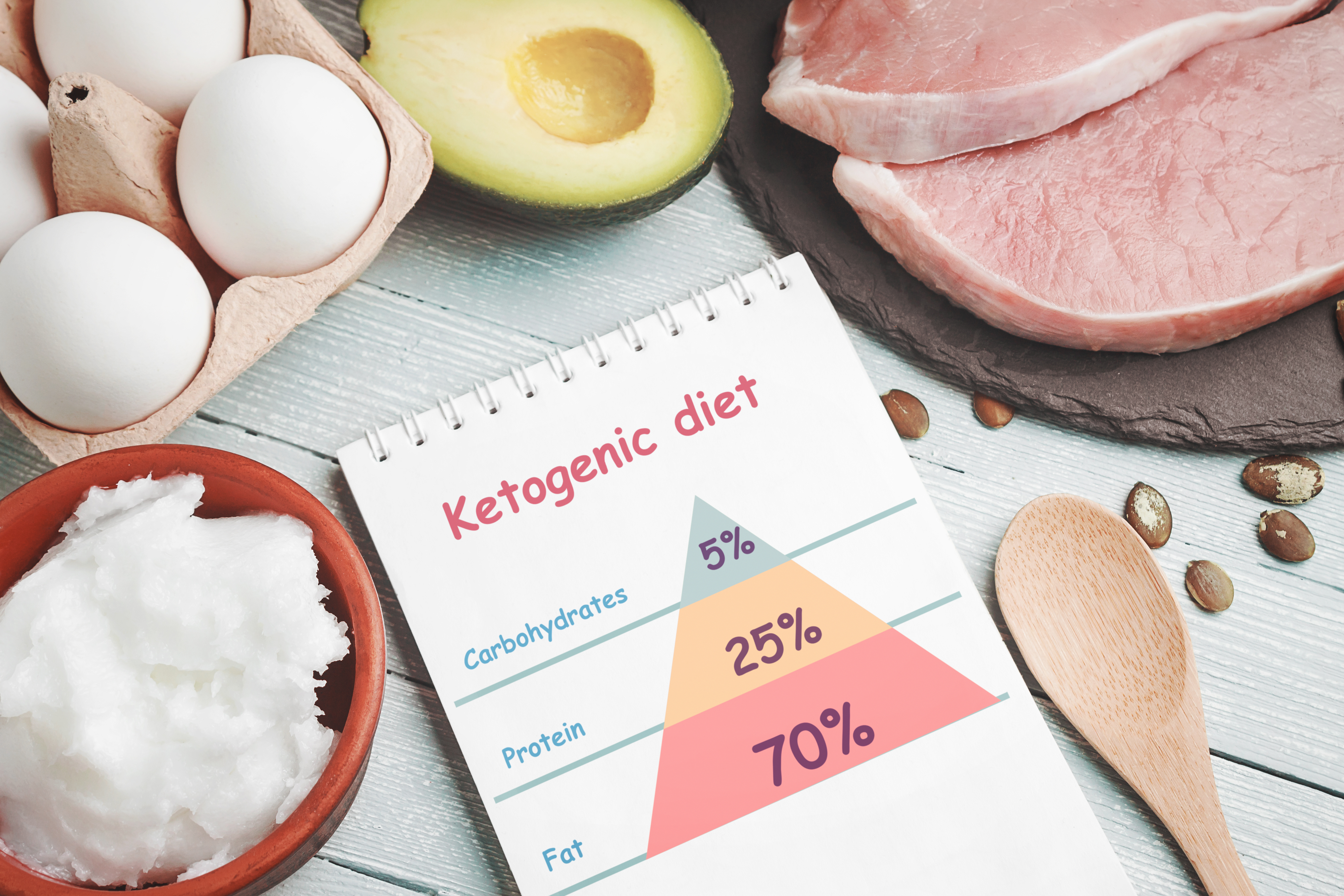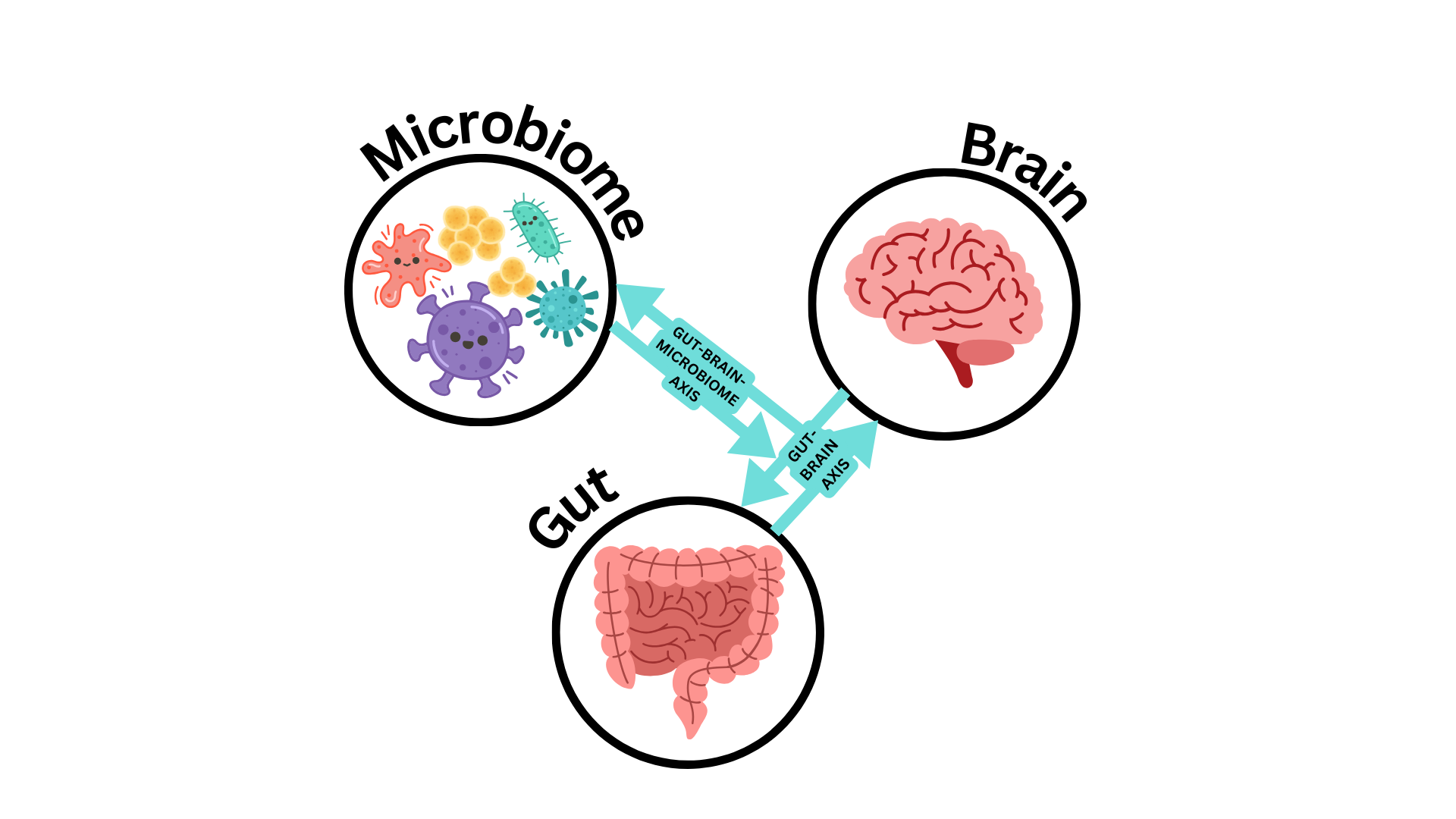10 Surprising Facts About the Keto Diet Even Followers Might Not Know
Keto, at its core, is a high-fat, low-carbohydrate diet designed to push the body into a state of ketosis, where fat is burned for fuel instead of carbohydrates. This metabolic state is said to offer various health benefits, from weight loss to improved cognitive function. However, the journey into ketosis is not as straightforward as it seems. As we peel back the layers of this dietary approach, we uncover unexpected dimensions that challenge conventional wisdom and offer new insights into how our bodies respond to different nutritional inputs. This article delves into the enigmatic aspects of the keto diet, revealing 10 surprises that will astonish even the most devout keto enthusiasts.
1. The Science of Ketosis: Beyond the Basics

Ketosis, the metabolic state central to the ketogenic diet, is often misunderstood. While many associate it solely with weight loss, its scientific underpinnings are far more intricate. When carbohydrate intake is drastically reduced, the liver begins to convert fats into ketones, which serve as an alternative energy source. This process not only shifts the body's energy dynamics but also impacts hormonal balance, appetite regulation, and even gene expression. Understanding these biochemical changes provides insight into why the keto diet can produce such profound effects on the body. Moreover, ketosis is not a one-size-fits-all state. The degree to which individuals enter and maintain ketosis can vary significantly, influenced by factors such as metabolic rate, activity level, and even genetic predisposition. This variability highlights the personalized nature of the keto diet, suggesting that what works for one person may not be as effective for another. By exploring the science of ketosis, we gain a deeper appreciation for the complex interplay between diet, metabolism, and individual health outcomes, setting the stage for the surprises that follow.
2. Keto and Mental Clarity: A Surprising Connection

One of the most touted benefits of the keto diet is enhanced mental clarity and focus. While the mechanism behind this phenomenon is not entirely understood, emerging research suggests that ketones may have neuroprotective properties. Unlike glucose, which can cause fluctuations in blood sugar levels and subsequent energy crashes, ketones provide a more stable and efficient energy source for the brain. This stability is believed to enhance cognitive function, improve concentration, and even reduce symptoms of mental fatigue. Furthermore, studies have indicated that the keto diet may have therapeutic potential for neurological disorders such as epilepsy, Alzheimer's disease, and Parkinson's disease. The anti-inflammatory effects of ketones, combined with their ability to improve mitochondrial function, contribute to this potential. As we explore the connection between keto and mental clarity, we uncover a surprising dimension of the diet that extends beyond weight loss, offering hope for those seeking to optimize brain health and cognitive performance.
3. The Gut Microbiome: Keto's Hidden Impact

The gut microbiome, a complex ecosystem of trillions of microorganisms residing in our digestive tract, plays a crucial role in overall health. Recent research has revealed that the keto diet can significantly alter the composition and function of the gut microbiome, with both positive and negative implications. On one hand, the reduction in carbohydrates and increase in healthy fats can promote the growth of beneficial bacteria, potentially enhancing gut health and reducing inflammation. On the other hand, the drastic change in dietary composition can also disrupt the balance of the microbiome, leading to digestive issues such as constipation or diarrhea. Additionally, the long-term effects of a keto diet on the gut microbiome remain largely unexplored, raising questions about its sustainability and impact on gut health over time. By examining the relationship between keto and the gut microbiome, we uncover a hidden aspect of the diet that warrants further investigation and consideration for those embarking on a ketogenic journey.
4. Navigating Nutrient Deficiencies on Keto

While the keto diet is celebrated for its ability to promote weight loss and improve metabolic health, it can also pose challenges in terms of nutrient intake. The restriction of carbohydrates often leads to a reduction in the consumption of fruits, vegetables, and whole grains, which are rich sources of essential vitamins and minerals. As a result, individuals following a keto diet may be at risk for deficiencies in nutrients such as vitamin C, magnesium, and potassium. To mitigate these risks, it is crucial for keto enthusiasts to prioritize nutrient-dense foods and consider supplementation where necessary. Leafy greens, nuts, seeds, and avocados are excellent sources of nutrients compatible with a keto lifestyle. Additionally, incorporating a variety of protein sources can help ensure adequate intake of essential amino acids. By understanding the potential for nutrient deficiencies on a keto diet, individuals can make informed choices to support their overall health and well-being.
5. The Role of Fats: Quality Over Quantity

In the context of the keto diet, fats take center stage as the primary source of energy. However, not all fats are created equal, and the quality of fats consumed can significantly impact health outcomes. While the diet encourages high fat intake, it is important to distinguish between healthy fats, such as those found in avocados, nuts, and olive oil, and unhealthy fats, like trans fats and highly processed oils. The emphasis on healthy fats is not only crucial for achieving ketosis but also for supporting cardiovascular health, reducing inflammation, and promoting satiety. Omega-3 fatty acids, in particular, have been shown to offer numerous health benefits, including improved heart health and cognitive function. By focusing on the quality of fats consumed, keto enthusiasts can optimize the health benefits of the diet while minimizing potential risks associated with poor dietary choices.
6. Keto Adaptation: The Transition Phase

Transitioning to a keto diet can be challenging, as the body undergoes a significant metabolic shift from relying on carbohydrates to utilizing fats for fuel. This transition phase, often referred to as "keto adaptation," can be accompanied by a range of symptoms collectively known as the "keto flu." These symptoms, which may include fatigue, headache, nausea, and irritability, are typically temporary but can be discouraging for those new to the diet. Understanding the process of keto adaptation is key to navigating this challenging phase. Gradually reducing carbohydrate intake, staying hydrated, and ensuring adequate electrolyte intake can help mitigate symptoms and ease the transition. Additionally, recognizing that the adaptation period is temporary and that the benefits of ketosis often outweigh initial discomfort can provide motivation to persevere. By exploring the nuances of keto adaptation, we gain insight into the challenges and rewards of embracing a ketogenic lifestyle.
7. The Social Dynamics of Keto

Adopting a keto diet can also have social implications, as dietary choices often intersect with cultural norms, social gatherings, and personal relationships. For many, following a keto diet requires navigating social situations where carb-rich foods are prevalent, such as family gatherings, dining out, or celebrations. This can lead to feelings of isolation or pressure to conform to traditional eating patterns. However, the growing popularity of the keto diet has also fostered a supportive community of like-minded individuals who share recipes, tips, and encouragement. Online forums, social media groups, and local meetups provide a sense of belonging and camaraderie for those committed to a ketogenic lifestyle. By examining the social dynamics of keto, we uncover the importance of community and support in sustaining dietary changes and achieving long-term success.
8. Keto and Athletic Performance: A Complex Relationship

The relationship between the keto diet and athletic performance is a topic of ongoing debate and research. While some athletes report improved endurance and fat utilization on a keto diet, others experience a decline in performance, particularly in high-intensity, anaerobic activities that rely heavily on glycogen stores. The variability in individual responses highlights the complexity of the diet's impact on athletic performance. For endurance athletes, the keto diet may offer advantages by enhancing fat oxidation and reducing reliance on glycogen. However, for those engaged in high-intensity sports, the lack of readily available carbohydrates can be a limiting factor. By exploring the nuances of keto and athletic performance, we gain a deeper understanding of how the diet can be tailored to meet the specific needs and goals of different athletes, emphasizing the importance of personalized nutrition strategies.
9. The Environmental Impact of Keto

As the keto diet continues to gain popularity, its environmental impact has come under scrutiny. The emphasis on animal-based products, such as meat and dairy, raises concerns about sustainability and the carbon footprint associated with food production. The environmental implications of the keto diet highlight the need for conscious choices and sustainable practices within the framework of a high-fat, low-carbohydrate lifestyle. To address these concerns, individuals can prioritize plant-based fats, such as nuts, seeds, and avocados, and opt for sustainably sourced animal products. Additionally, incorporating more plant-based meals and reducing food waste can contribute to a more environmentally friendly approach to the keto diet. By examining the environmental impact of keto, we uncover an important dimension of the diet that intersects with broader issues of sustainability and ethical food choices.
10. Keto Myths and Misconceptions: Debunking Common Beliefs

Despite its popularity, the keto diet is often surrounded by myths and misconceptions that can lead to confusion and misinformation. Common myths include the belief that the diet is solely about eating bacon and butter, that it leads to nutrient deficiencies, or that it is unsustainable in the long term. By debunking these myths, we provide a clearer understanding of what the keto diet truly entails and how it can be effectively implemented. For instance, while the diet does emphasize high fat intake, it encourages the consumption of healthy fats and nutrient-dense foods. Additionally, with proper planning and education, nutrient deficiencies can be avoided, and the diet can be maintained sustainably. By addressing these misconceptions, we empower individuals to make informed decisions about their dietary choices and dispel the myths that often overshadow the benefits of the keto diet.
Ultimately, the keto diet is not a one-size-fits-all solution, and its success depends on individual goals, preferences, and lifestyle factors. As we continue to uncover the mysteries of keto, we are reminded of the importance of personalized nutrition and the need to approach dietary choices with curiosity, openness, and a commitment to lifelong learning. Through this exploration, we hope to inspire readers to dive deeper into the enigma of keto and discover the surprises that await even the most devout enthusiasts.







